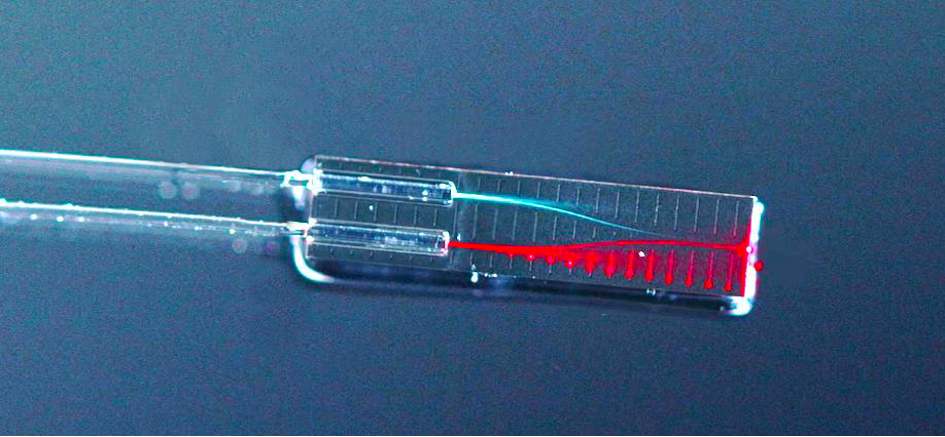
Alliance PolyChrome Berlin receives 9.2 million euros BMBF funding
The “PolyChrome Berlin” alliance, which brings together partners from science and business in the Berlin-Brandenburg region, has qualified for funding from the German Federal Ministry of Education and Research (BMBF). Starting in spring 2022, the participating partners will receive 9.2 million euros over the next three years as part of the “RUBIN – Regional Entrepreneurial Alliances for Innovation” funding program. PolyChrome Berlin was able to prevail against a total of 53 applicants as one of eleven funded projects in the funding call.
“In the predecessor project PolyPhotonics Berlin, we were already able to develop miniaturized hybrid optical components for applications in telecommunications,” says Crispin Zawadzki, deputy group leader “Hybrid PICs” at Fraunhofer HHI and chairman of the PolyPhotonics Berlin e.V. association. “Based on this success, we are now expanding our research to the field of visible light in order to bring forth new applications in the fields of analytics and sensor technology. We are very pleased that we could continue to collaborate with the partners we know from PolyPhotonics Berlin e.V. and at the same time expand the project team.”
“When we talk about platform here, you have to imagine chips the size of a one-cent coin,” explains Arne Schleunitz, coordinator of the PolyChrome project and technical managing director of micro resist technology GmbH. “The small platform is equipped with optical waveguides made of polymer or SiN material and other functional elements, such as glass fibers. In addition, the surface of the chip can be provided with biological scavenger molecules (aptamers) for applications in medicine.”
The capabilities of the PolyChrome platform will be demonstrated using six demonstrators divided into three areas. The first area is the use of fiber-based sensing in the application field of fiber optic networks. Here, optical fibers can be used to monitor the environment, for example road traffic, as sensors. The second area comprises visible light sources, so-called multi-lambda sources. These are intended to open up products in the consumer sector such as RGB sources or to be used as light sources in medicine or research. The third area is the use of SiN sensors. SiN sensors enable fast, cost-effective and specific measurement of a wide range of chemical and biological substances. With this method, water bodies can be tested for pollutants within minutes or the body can be examined for vitamin insufficiencies.
The “Hybrid PICs” research group of the “Photonic Components” department at Fraunhofer HHI brings together the various components and thus provides the basis for the hybrid integration platform. The researchers are contributing their many years of experience in the manufacture of photonic components and technology platforms.
As part of the project, PolyChrome Berlin will develop a hybrid photonic integration platform. The innovative platform will be able to guide and deflect light as well as generate and detect it. The research team is using the platform to tap into a wide wavelength range from 400nm to 1650nm, ranging from infrared to visible light. The team is also working on an interplay between polymer- and silicon nitride-based optical waveguides. This novel approach combined with the platform’s hybrid integration capabilities will enable PolyChrome Berlin to open up new applications in sensing and analytics that can also be implemented cost-effectively.
“In the predecessor project PolyPhotonics Berlin, we were already able to develop miniaturized hybrid optical components for applications in telecommunications,” says Crispin Zawadzki, deputy group leader “Hybrid PICs” at Fraunhofer HHI and chairman of the PolyPhotonics Berlin e.V. association. “Based on this success, we are now expanding our research to the field of visible light to bring forth new applications in the fields of analytics and sensing. We are very pleased that we could continue to collaborate with the partners we know from PolyPhotonics Berlin e.V. and at the same time expand the project team.”
“When we talk about platform here, you have to imagine chips the size of a one-cent coin,” explains Arne Schleunitz, coordinator of the PolyChrome project and technical managing director of micro resist technology GmbH. “The small platform is equipped with optical waveguides made of polymer or SiN material and other functional elements, such as glass fibers. In addition, the surface of the chip can be provided with biological scavenger molecules (aptamers) for applications in medicine.”
The performance of the PolyChrome platform will be demonstrated on six demonstrators, which are divided into three areas. The first area is the use of fiber-based sensor technology in the application field of fiber optic networks. Here, optical fibers can be used to monitor the environment, for example road traffic, as sensors. The second area comprises visible light sources, so-called multi-lambda sources. These are intended to open up products in the consumer sector such as RGB sources or to be used as light sources in medicine or research. The third area is the use of SiN sensors. SiN sensors enable fast, cost-effective and specific measurement of a wide range of chemical and biological substances. With this method, water bodies can be tested for pollutants within minutes or the body can be examined for vitamin insufficiencies.
The “Hybrid PICs” research group of the “Photonic Components” department at Fraunhofer HHI brings together the various components and thus provides the basis for the hybrid integration platform. The researchers contribute their many years of experience in the production of photonic components and technology platforms.
With their core competencies, the 12 partners cover the entire value chain necessary for the development of the technology platform and its commercial exploitation. In addition to Fraunhofer HHI, the research project includes ADVA Optical Networking SE, Allresist GmbH, Chembio GmbH, Eagleyard Photonics GmbH, ficonTECService GmbH, Fraunhofer IZI-BB, Laser Zentrum Hannover e.V., micro resist technology GmbH, OSRAM Opto Semiconductors GmbH, Scienion AG and VPIphotonics GmbH.

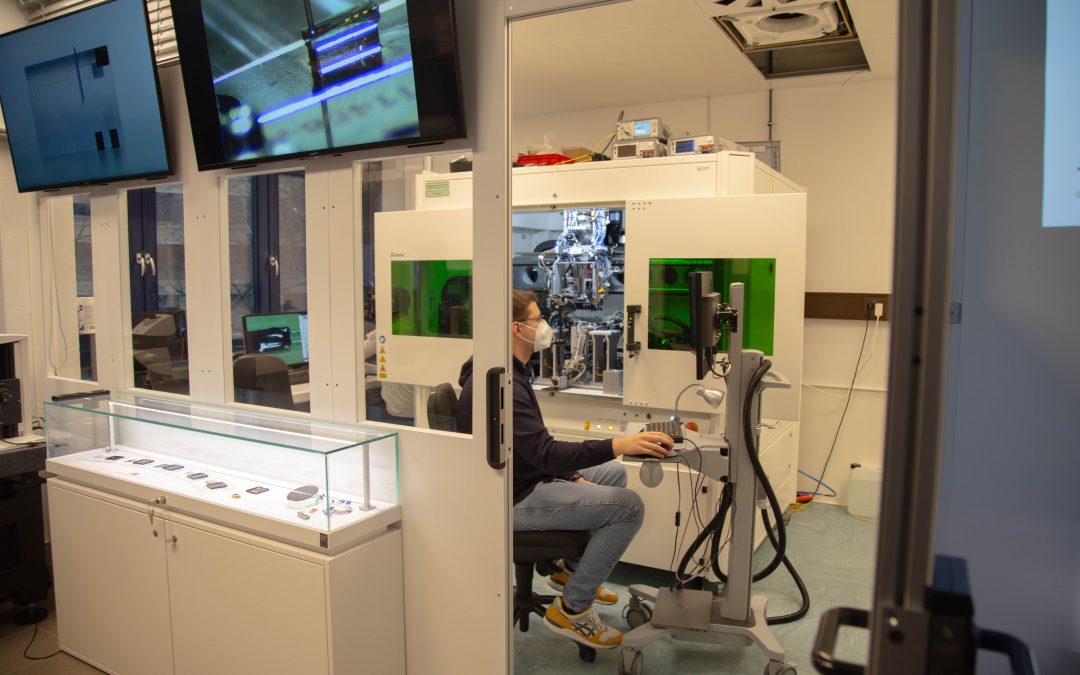

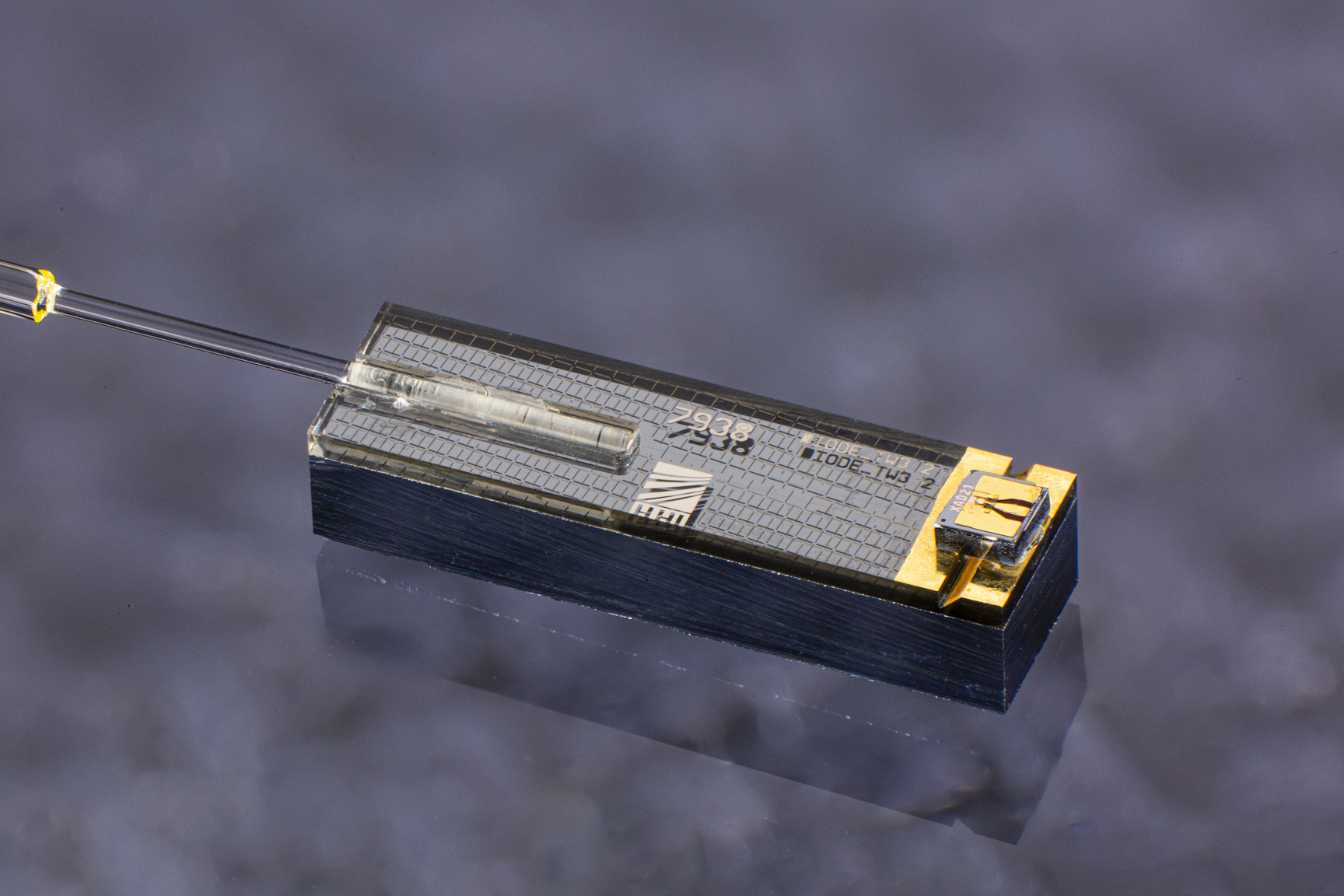
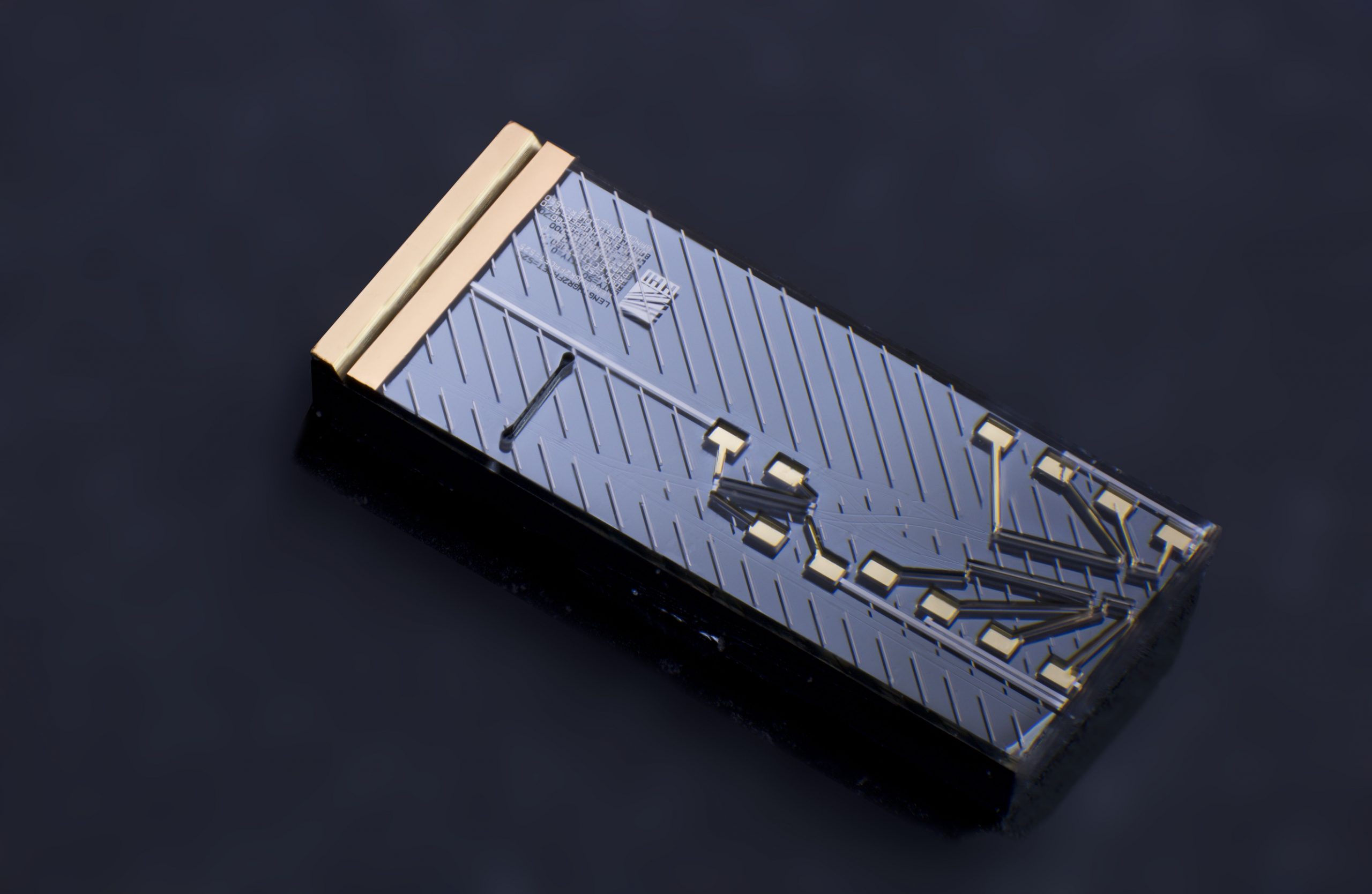
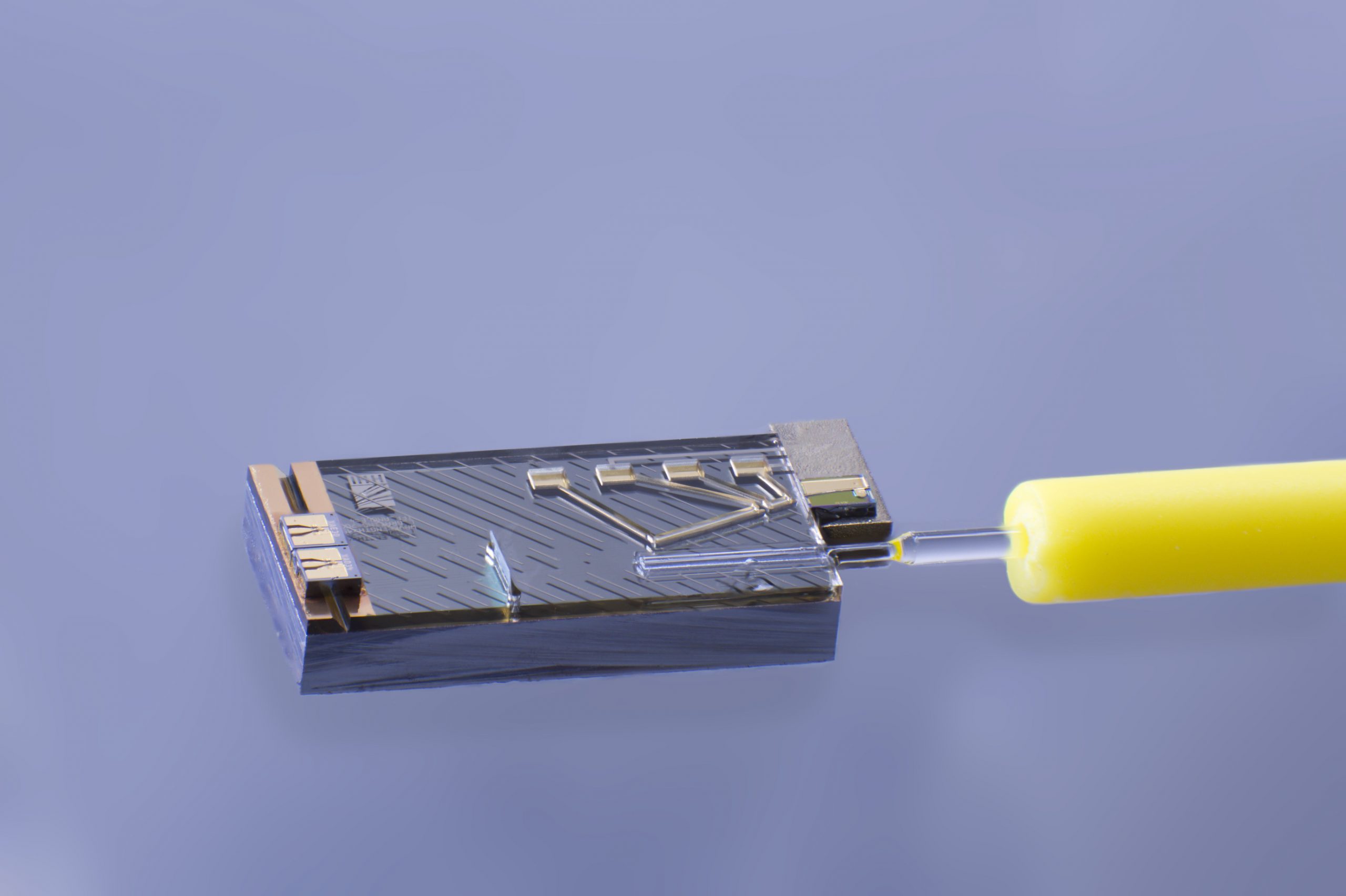
 Hier geht es zum
Hier geht es zum